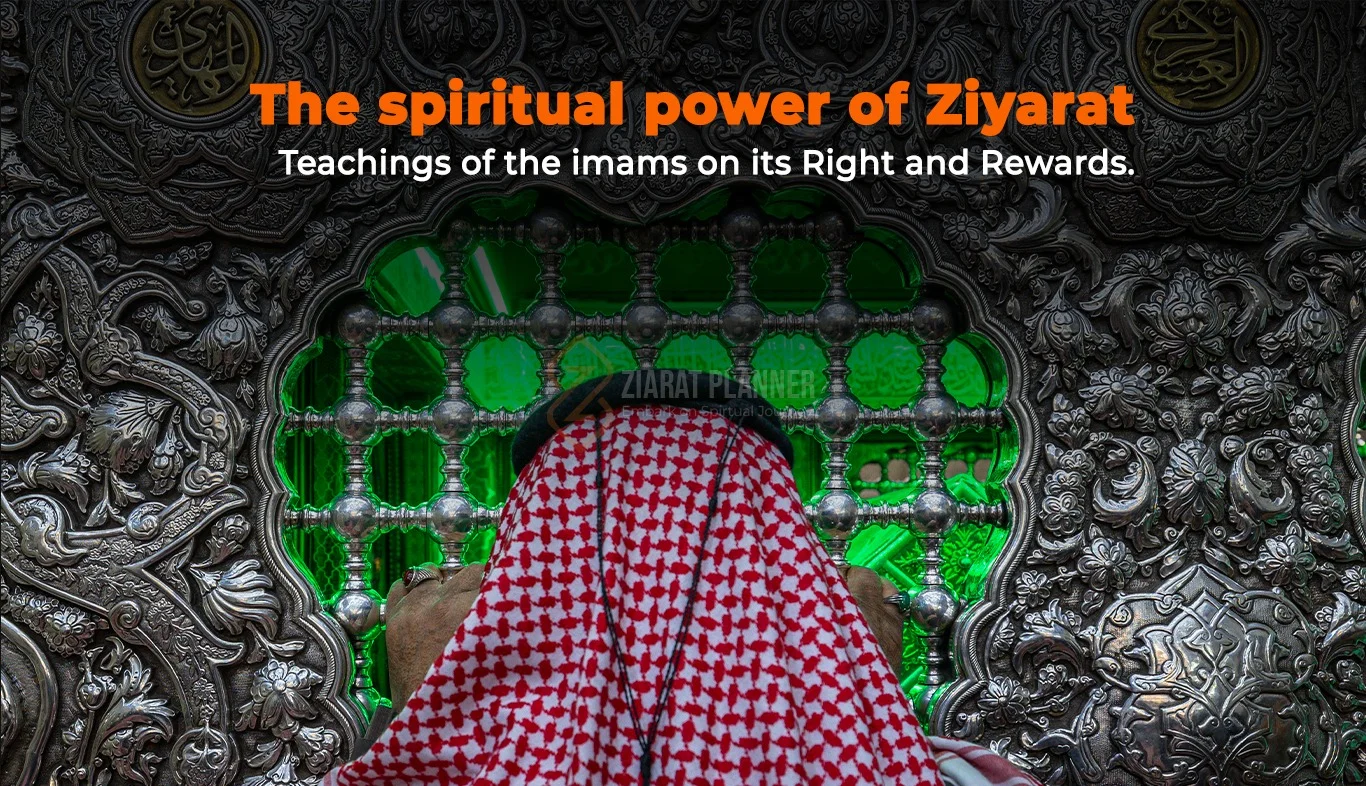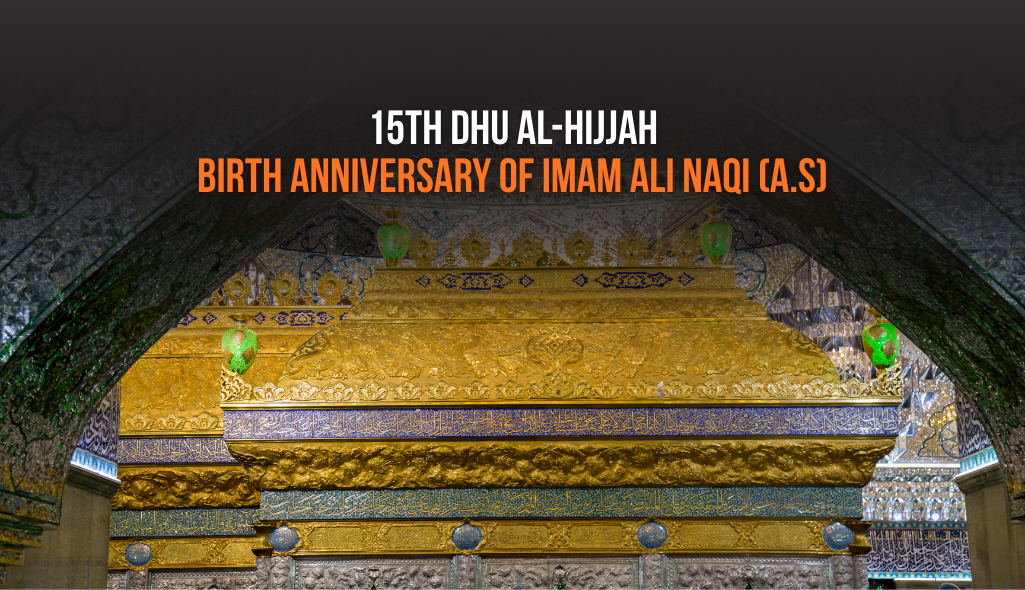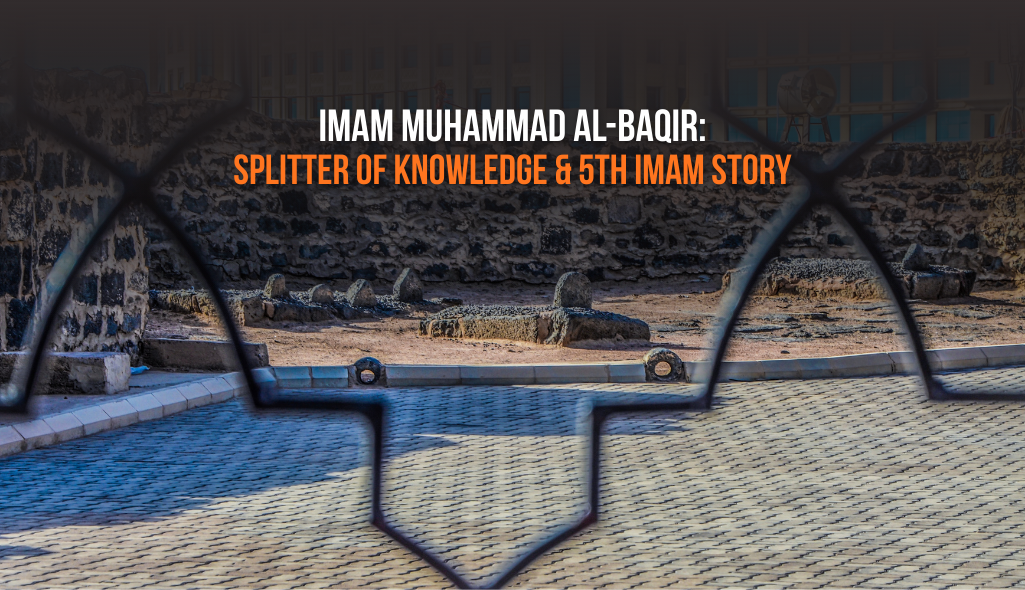The spiritual power of Ziyarat: Teachings of the imams on its Right and Rewards.

Introduction
The Linguistic and Terminological Meaning of Ziyarat 1.Linguistic Meaning:The word Ziyarat is derived from the Arabic root “Z W R” which literally means: “to visit someone, to intend to meet, to approach for a purpose, or to turn toward a specific place or personality.
“So, in a linguistic sense, Ziyarat means going to someone with attention and intent whether physically or spiritually.
2. Terminological Meaning:
In Islamic teachings, Ziyarat is considered an act of worship, a spiritual practice, and a sign of love and allegiance (wilayah) to the friends of Allah. In terminology, Ziyarat means: Visiting the graves or shrines of the beloved servants of Allah especially the Prophets, Imams, Saints, and the righteous to express love, respect, and devotion, to acknowledge their spiritual status, and to seek closeness to Allah through their intercession.
Ziyarat is not merely a physical act but must be accompanied by sincerity, understanding, and reverence.
That’s why the Imams said:
Whoever visits Imam Hussain (a.s.) with recognition of his right. meaning that Ziyarat must be performed with awareness of the Imam’s status.
The concept of Ziyarat comprises three essential elements:
1. Intention and Purpose: Going with respect and devotion to a chosen personality
2. Love and Understanding: Visiting with deep affection and awareness
3. Connection and Obedience: Ziyarat is not just a meeting but a renewal of loyalty and submission The Mutual Connection Between Ziyarat and the Love of Ahlul-Bayt (a.s.)
Ziyarat (pilgrimage to the graves of the holy personalities) and the love of Ahlul-Bayt (a.s.) share a deep and inseparable bond. In fact, Ziyarat is the practical expression of love for the Ahlul-Bayt (a.s.). True love naturally demands remembrance, following the footsteps of the beloved, and seeking closeness to them.
1.Love Demands Presence and Connection When someone truly loves another, they don’t just claim it verbally they yearn to be near their beloved, to hear about them, to visit them. In the same way, a believer who loves the Ahlul Bayt (a.s.) desires to visit their shrines out of devotion and longing.
2.Ziyarat: A Declaration of Loyalty. Ziyarat is not just a visit; it is a spiritual declaration: “O son of the Messenger (s.a.w.)! I am with you, loyal to your cause, disassociated from your enemies, and devoted to your path.” That is why the words of Ziyarat often include themes of Wilayah (devotion), Bara’ah (disassociation from the enemies), and Ittiba’ (obedience).
3.Connection in the Light of Hadith The Imams (a.s.) have described Ziyarat as a sign of true love for the Ahlul-Bayt (a.s.). Imam Ja’far al-Sadiq (a.s.) said:
“Whoever visits Imam Hussain (a.s.) with recognition of his right, it is as if he has visited Allah on His Throne.” (Wasa’il al-Shi’ah) This Hadith shows that Ziyarat reflects the depth of love and recognition of the status of the Imams.
4.Turning Love into Action
A mere verbal claim of love is not enough unless it is backed by action. Ziyarat transforms this claim into a
sincere act. While performing Ziyarat, a person renews their commitment to follow the values of the AhlulBayt (a.s.) their patience, piety, sacrifice, and unwavering devotion to truth.
The Qur’anic Perspective on Ziyarat
Although the word Ziyarat (visitation) is not mentioned explicitly in the Qur’an, there are several verses that
allude to its concept, including the respect for the Prophets (a.s.), the righteous, and the spiritual connection
with them even after their passing. Below are some key points:
1.Command to Approach the Prophet (s.a.w.) for Forgiveness And if, when they wronged themselves, they had come to you [O Prophet], and asked forgiveness of Allah, and the Messenger had asked forgiveness for them, they would have found Allah Accepting of Repentance and Merciful.
(Surah al-Nisa, 4:64)
Indication:
This verse encourages approaching the Prophet (s.a.w.) to seek Allah’s mercy—implying the merit of physically and spiritually presenting oneself before him, which applies even after his worldly departure.
2.Respecting the Homes of the Righteous In houses which Allah has ordered to be raised and that His name be mentioned in them..”
(Surah al-Nur, 24:36)
Interpretation:
According to many commentators, including Shia and some Sunni scholars, these “houses” refer to the homes
of the Prophets and the Ahlul-Bayt (a.s.), which include their burial places worthy of honor and visitation.
3.The Story of Prophet Ya‘qub (a.s.) and the Shirt of Yusuf (a.s.)
(Surah Yusuf, verses 93–96)
Prophet Ya‘qub (a.s.) regained his eyesight by smelling the shirt of Yusuf (a.s.).
Indication:
This is a clear reference to Tabarruk (seeking blessings), which affirms the concept of deriving spiritual benefit
through objects or places associated with Allah’s chosen ones—Ziyarat being one form of that.
4.The Martyrs Are Alive And do not think of those who are killed in the way of Allah as dead. Rather, they are alive with their Lord, receiving provision.”
(Surah Aali ‘Imran, 3:169)
Indication:
Martyrs, especially the likes of Imam Hussain (a.s.), are alive in the sight of Allah, and visiting them is a means of spiritual connection and inspiration. While the term Ziyarat may not appear directly in the Qur’an, its meaning and spiritual justification are reflected in various verses. Ziyarat represents reverence for the close servants of Allah, seeking nearness to Him through their status and presence, and drawing spiritual benefit from visiting their sacred sites.
Spiritual Effects of Ziyarat
1.Means of Divine Closeness’ Ziyarat draws a person closer to Allah through the intercession of the Ahlul-Bayt (a.s.).
2.Inner Peace’ It brings comfort and tranquility to the heart.
3.Forgiveness of Sins’ According to many narrations, past sins are forgiven through sincere Ziyarat.
4.Acceptance of Supplications.’ Prayers made during Ziyarat are more likely to be accepted.
5.Spiritual Renewal’ Ziyarat revitalizes the soul and strengthens spiritual resolve.
6.Strengthening of Faith’ It deepens and reinforces one’s faith and commitment.
7.Increased Connection with Ahlul-Bayt (a.s.)’ Ziyarat intensifies love and loyalty towards the holy household.
8.Hope for Intercession’ Visitors are given hope of receiving the intercession (shafa’ah) of the Ahlul-Bayt (a.s.) on the Day of Judgment.
9.Worldly and Eternal Blessings’ It brings blessings in livelihood, health, and relief from hardships in both this life and the hereafter. The Status of Ziyarat in the Sayings of the Infallible Imams (a.s.)
a)imam Ja’far al-Sadiq (a.s.) on Recognizing the Right of Ziyarat
Imam Ja’far al-Sadiq (a.s.) beautifully stated:
“Whoever visits Imam Hussain (a.s.) with full recognition of his right, it is as though he has visited Allah on His Throne.”This profound narration highlights that Ziyarat is not merely a ritual—rather, it is an elevated spiritual act that leads to the forgiveness of sins, purification of the soul, and closeness to
Allah. Recognizing the status and mission of Imam Hussain (a.s.) transforms Ziyarat into a divine encounter.
b)Imam Ali al-Ridha (a.s.): Ziyarat as an Ascension. The Imam said:
“Visiting the grave of Aba Abdillah (a.s.) is like visiting Allah on His Throne.” This statement underscores the spiritual elevation one attains through sincere Ziyarat. It is not the physical journey alone, but the intention, purity of heart, and depth of awareness that carry the visitor spiritually to the Divine.
c)Imams Muhammad al-Taqi (a.s.) & Ali al-Naqi (a.s.): Ziyarat as a Source of Divine Acceptance These noble Imams emphasized not only the importance of visiting Imam al-Ridha’s shrine but also of visiting the graves of the Ahlul-Bayt (a.s.) as a means to spiritual nearness and acceptance of prayers. Ziyarat becomes a path to divine mercy, answered supplications, and inner transformation.
What Does “Recognizing the Right” of Ziyarat Mean?
The Imams used the phrase “‘Ārifan bi-Haqqihi” one who knows the right of the Imam. This means Ziyarat must be done with knowledge, love, and insight not merely as a tradition. The visitor should understand the Imam’s divine status, mission, and the sacrifice he made for Islam and humanity.
One who sees Imam Hussain (a.s.) only as a historical martyr and not as a Divine Proof, successor of the Prophet, and guardian of divine justice, fails to fulfill the true right of Ziyarat. Ziyarat and the Training of the Soul Ziyarat is a journey of repentance, reflection, and returning to Allah. It is a time when tears cleanse the heart, and prayers flow with sincerity. The soul begins to detach from worldly distractions and turns towards the path of purity and devotion. True Ziyarat inspires us to live by the values and character of the Ahlul-Bayt (a.s.)—transforming the heart and reshaping the self.
The Unique Power and Global Impact of Imam Hussain’s (a.s.) Ziyarat Karbala is not just a land it is a living message of freedom, truth, and sacrifice. The annual Ziyarat of Arbaeen one of the world’s largest peaceful gatherings serves as a spiritual awakening against oppression. The message of Imam Hussain (a.s.) is universal. He speaks to every oppressed soul, every seeker of justice, and every human yearning for truth and dignity.
The Importance of Ziyarat in the Era of Occultation
In the absence of the physical presence of Imam al-Mahdi (a.j.), Ziyarat becomes a powerful way to renew our bond with him. Through Du’a al-Nudbah, sending salutations to him, and performing Ziyarat on his behalf (niyabah), we affirm our allegiance and longing for his return.
Conclusion
Ziyarat is not just a journey it is a spiritual discipline. It is not a formality it is a bridge that connects the
soul of the believer to the divine legacy of the Ahlul-Bayt (a.s.). The Imams taught us that true Ziyarat must be rooted in love, sincerity, and deep recognition. One who performs Ziyarat with knowledge and heart becomes not just a visitor of the grave—but a follower of their path, a carrier of their message, and a soul awakened by their light.





